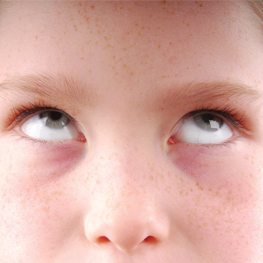
Ouch! Whether disrespectful behavior plays out in the sandbox, the family room, or the boardroom, it hurts. Adults and children alike feel the sting of disrespect. Per a new University of Kentucky study, children as young as 6 recognize and respond to disrespect, often with anger. Parents and caregivers use the term ‘disrespect’ to cover a broad range of behaviors, from failing to offer polite greetings to eye rolls, sighs, and mouthing off. Regardless of the form it takes, we don’t like it. Thankfully, even if disrespect is a regular visitor in your home, it’s possible to build more respectful family relationships based on empathy and mutual respect, says Tiffany Sands, a licensed counsellor. Read on for age-by-age guidance on ditching disrespect for good.
Early Years: 0 to 5
Model Behavior
Many parents dream of peaceful, respectful interactions with their children - the comfortable and easy back-and-forth dialogue that flows from a solid bond. But these types of relationships don’t just happen. Respectful communication is a byproduct of a healthy relationship, says licensed counsellor and professor Susan K. Gardin. “Young children learn respect when they observe respectful behavior and experience respectful interactions with parents and other family members. And building a close and connected relationship with your child is the most important factor in preventing disrespectful behavior.” Begin building a respectful bond in toddlerhood by listening to your child, displaying empathy, and validating their feelings (“You’re feeling mad. That must be hard. How can I help?”). In turn, children raised with a foundation of mutual respect are more likely to treat parents and siblings respectfully.
Elementary Years: 6 to 12
Respectful Roots
Eye rolling, slouching, muttered insults: sound familiar? During the elementary school years, moody tweens may act out in ways that feel disrespectful to parents, teachers, and other authority figures. Though it’s tempting to dole out punishment for the misdeeds (“I heard that! You’re grounded!”), it’s vital to look closer at the underlying cause of the behavior. Children behave disrespectfully when they feel they’re not being heard, says Sands. “Often, there is a need that’s not being met, such as the parent not spending enough time with their child or not responding respectfully to the child’s needs. Or the child may be struggling academically or socially and doesn’t know how to express their feelings appropriately.” Listening to your child, asking your child for their opinions, and displaying confidence in their ability to solve a problem will help your child feel
heard and respected, dialing down the chance of future angry outbursts.
Teen Years: 13 to 18
Higher Ground
Teens may look like young adults, but they’re still kids - big ones, with big feelings. During the teenage years, those big feelings can fuel disrespectful shouting matches between teens and their parents or siblings. “There is no right or wrong to feelings, and feelings can’t be disrespectful. But when a child is flooded with feelings, their emotional brain takes over and prevents their logical brain from recognizing that shouting isn’t going to help them resolve the problem,” says Gardin.
To calm the storm, help your teen flee the flood by calming their emotional brain. Strive to understand your teen’s point of view (“Help me understand. Do I have this right?”). Accept and validate their feelings - even if you don’t agree with them - to diffuse your teen’s overly reactive state, says Sands. This can help reestablish mutually respectful communication and build an enduring, enriching bond.
Malia is an award-winning health and parenting journalistand mom of three. Her latest book is Sleep Tight, Every Night: Helping Toddlers and Preschoolers Sleep Well Without Tears, Tricks, or Tirades.
Calgary’s Child Magazine © 2024 Calgary’s Child